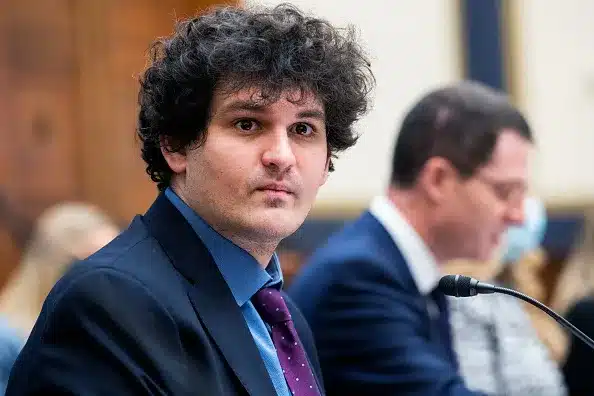In a critical moment for both the cryptocurrency industry and the courtroom, the process of selecting a jury has commenced in New York, setting the stage for the trial of FTX founder Sam Bankman-Fried. This marks the beginning of an eagerly awaited six-week legal battle, where Bankman-Fried faces charges of fraud and money laundering connected to the dramatic collapse of his exchange last year. If convicted, the 31-year-old entrepreneur could potentially spend the rest of his life behind bars.
Bankman-Fried, whose appearance has notably transformed, made his way to the courtroom from the Brooklyn detention center where he is currently held. Reports have hinted at the challenges he has encountered in obtaining vegan food and necessary medication while in custody. Strikingly, his iconic unruly hair has been neatly trimmed, and he presented himself in a somber dark suit.
Prior to the commencement of jury selection, Bankman-Fried spoke a single word, responding “yes” to the judge’s query about whether he understood his right to testify in his defense, even if his legal counsel suggested otherwise.
In a bid to ensure the impartiality of prospective jurors, Bankman-Fried’s legal team submitted a series of questions meticulously crafted to uncover individuals who may have incurred financial losses or maintain close associations with cryptocurrency trading. Additionally, they sought to identify potential jurors with negative perceptions of FTX. Furthermore, the defense requested that the judge delve into the extensive media coverage surrounding the case.
On the opposing side, prosecutors raised objections to Bankman-Fried’s legal team bringing up his attention deficit hyperactivity disorder (ADHD) diagnosis, arguing that it could potentially influence his behavior, body language, or eye contact.
While Judge Lewis Kaplan streamlined the number of questions, Brendan Quigley, a former federal prosecutor who now serves as a white-collar defense lawyer at Baker Botts, recognized that the jury selection process could consume considerable time. Quigley drew a parallel to the jury selection process in the 2021 case involving Theranos founder Elizabeth Holmes, which spanned three days due to intense media attention. In that instance, some potential jurors were dismissed as they believed they couldn’t maintain impartiality after viewing a documentary about the fraudulent blood-testing company.
Both the prosecution and the defense in the Bankman-Fried case possess a limited number of peremptory strikes, which they can employ to disqualify jurors. Ultimately, 18 jurors will be chosen, comprising 12 jurors and six alternates. Quigley emphasized that the final jury would likely consist of ordinary New Yorkers with no prior investments in cryptocurrency and a limited grasp of the case’s complexities.
The commencement of jury selection coincides with the release of an eagerly anticipated book about Sam Bankman-Fried authored by renowned writer Michael Lewis. Lewis, known for his acclaimed works such as “Liar’s Poker,” “Flash Boys,” and “The Big Short,” portrays Bankman-Fried as a brilliant mind whose aspirations to revolutionize the world took a tragic turn. Lewis has described the book as a “letter to the jury,” offering a glimpse into the narrative battle that awaits in the courtroom.
As the trial unfolds, both the defense and prosecution will present their interpretations of events. Yet, Lewis firmly believes that his narrative holds a unique strength. An intriguing courtroom discussion prior to jury selection even revealed the judge’s intention to inquire about prospective jurors’ exposure to Lewis’s comments.
Disclaimer: This article aims to provide information and context and does not constitute legal or financial advice. The viewpoints expressed herein are attributed to the individuals and organizations mentioned and do not necessarily mirror the perspectives of Clout Scoop News or its affiliates. Readers are strongly encouraged to seek professional legal counsel for any legal matters, and this article takes no position on the guilt or innocence of any party involved in the ongoing legal proceedings.






